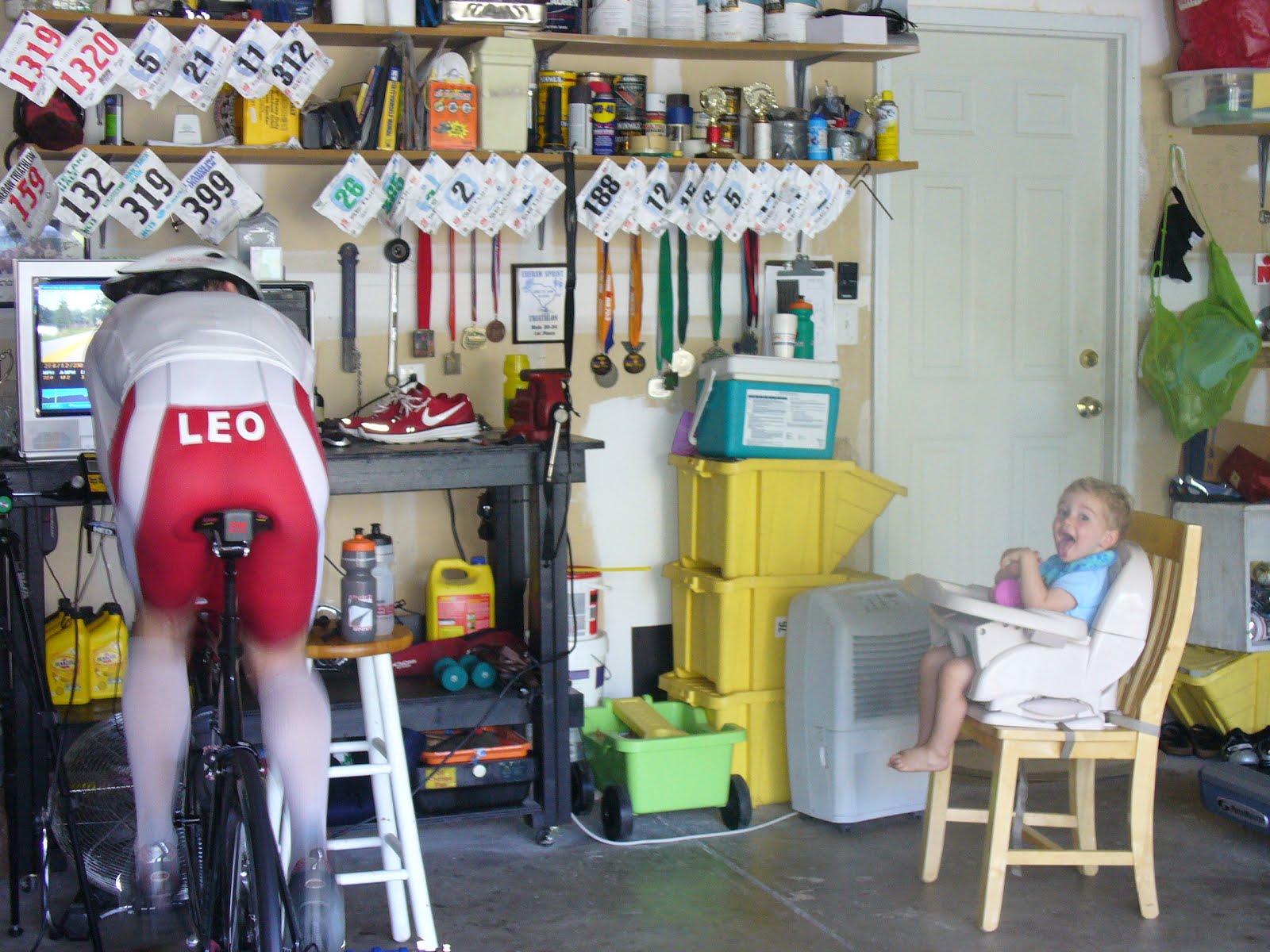I'll try to keep this pretty concise and to the point.
First, I think it is absolutely ESSENTIAL to envision greatness. In my mind I go over time and time again how it will look like when entering the finish chute. I get to the point of seeing the finishing time that I am desiring up over my head. I go as far as seeing my face with a victorious smile to hands clinched and pointing to Him above. I also try to envision perfect running form as I work towards the 9th Street Live finish area. I always tell my athletes that one MUST envision themselves crossing the finish line before they embark on taking on an Ironman. If you can't do that I'd caution you in taking one on. Own the Ironman event well before the starting gun goes off!
Second, I love to dissect IM events (any event) with a clear understanding of my limits; using science and data revealed in training. In other words, I will not jump onto my Felt and push 350 watts (~28 MPH) for the first 25 miles. Moreover, I will not take off from the dock at IML and push 1:05/100s. Lastly, I will not open up at 5:45 minute miles out of T2. All of these examples do not fit with IM racing for this cat. Latta Triathlon, yes. IML, no. This approach would make for one long day.
This is a perfect segue to how I will try to dissect IML this coming weekend (bike specifically). Most recently I tested myself using both gas exchange and lactate analysis on my Felt. During this test I poked and prodded myself to validate blood lactate clearance. I love data that means something to me and my peeps.
Per the data gathered I plan on riding at 225 to 250 watts and/or 145 bpm. My Lactate Balance Point (LBP - point at which your body is able to efficiently metabolize lactate within your bloodstream) was found to be 280 watts or 173 bpm. Knowing where my legs are from a muscular endurance stand point I will not come close to holding 280 watts for 5 hrs.
To further validate my race strategy I conducted an hour test at my upper limit of 250 watts. It is important to note that this method could be done for 2 to 3 hours as well. Samples could be extracted/taken every 15 to 20 minutes vs. every 5 as noted below. For the data lover here is how it played out:
36 min total elapsed time / 140 bpm / 2.9 mmol of lactate
42 min /142 / 3.3
48 min / 143 / 2.7
54 min / 142 / 2.7
60 min / 143 / 2.4
From this 60 min I feel confident that targeting an upper limit of 250 watts will allow me to process external/internal fuel sources efficiently and have legs to run with. It is important to note that I have spent plenty of hours studying these numbers to further validate my proposed strategy.
Thirdly, the small things make a significant difference at IM events. Below are the top items I make sure to hone in on prior to race day:
(1) New goggles - Hands down, the cheapest 'race day insurance' you can buy. Foggy or leaky goggles can set a very bad tone for the day. Spend 20 or so bucks on some new gogs and test em' during the pre-race swim. Don't play around with a pair of so-so goggles.
(2) Bring your food - If possible, bring tried and true food to your IM event. There is no room for playing around here friends. Anne prepares the food for the 3 or so days before departing and we pack it all within a plug in refrigerator that can then be brought into the hotel room.
(3) Whole Foods Market (http://www.wholefoodsmarket.com/) - Slight contradiction here, but Anne and I are huge fans of Whole Foods grocery. We always seek out these stores when going to events. This place is an outstanding source for clean, nutrient dense, organic fare. The best salad bar around is in Orlando. Check it out for the Orlando 70.3 event.
(4) Sleep - Ideally, I try to get about 8 hours of sleep most nights of the week leading up to an IM. Luke did not get the memo on this last night. 4 to 5 hours of sleep was the reality last night. If your IM in on Saturday try to make Thursday your 8 hr night. Most struggle to sleep the night before an IM.
(5) Perspective - I sense a tremendous amount of self imposed stress/tension at IM events. Do what you can to keep a level head from the moment you enter the IM arena; host hotel, transition area, etc. I encourage folks to ponder how blessed they are to even consider such a challenge.
Nick, this is not a thorough break down of all aspects of IML, but hope it sheds some light on things.
Train smart and with a purpose,
Coach L

Good stuff man! Thanks for the shout out. I'm waiting to see that asterisk for Leo in the KQ column...
ReplyDeleteYour the best Nick! Thanks for the encouraging words and for envisioning an outstanding day for Team Leo :) In His hands.
ReplyDeleteAny chance we can get specific nutrition details? In particular, what/when you eat/drink the morning of the race.
ReplyDelete